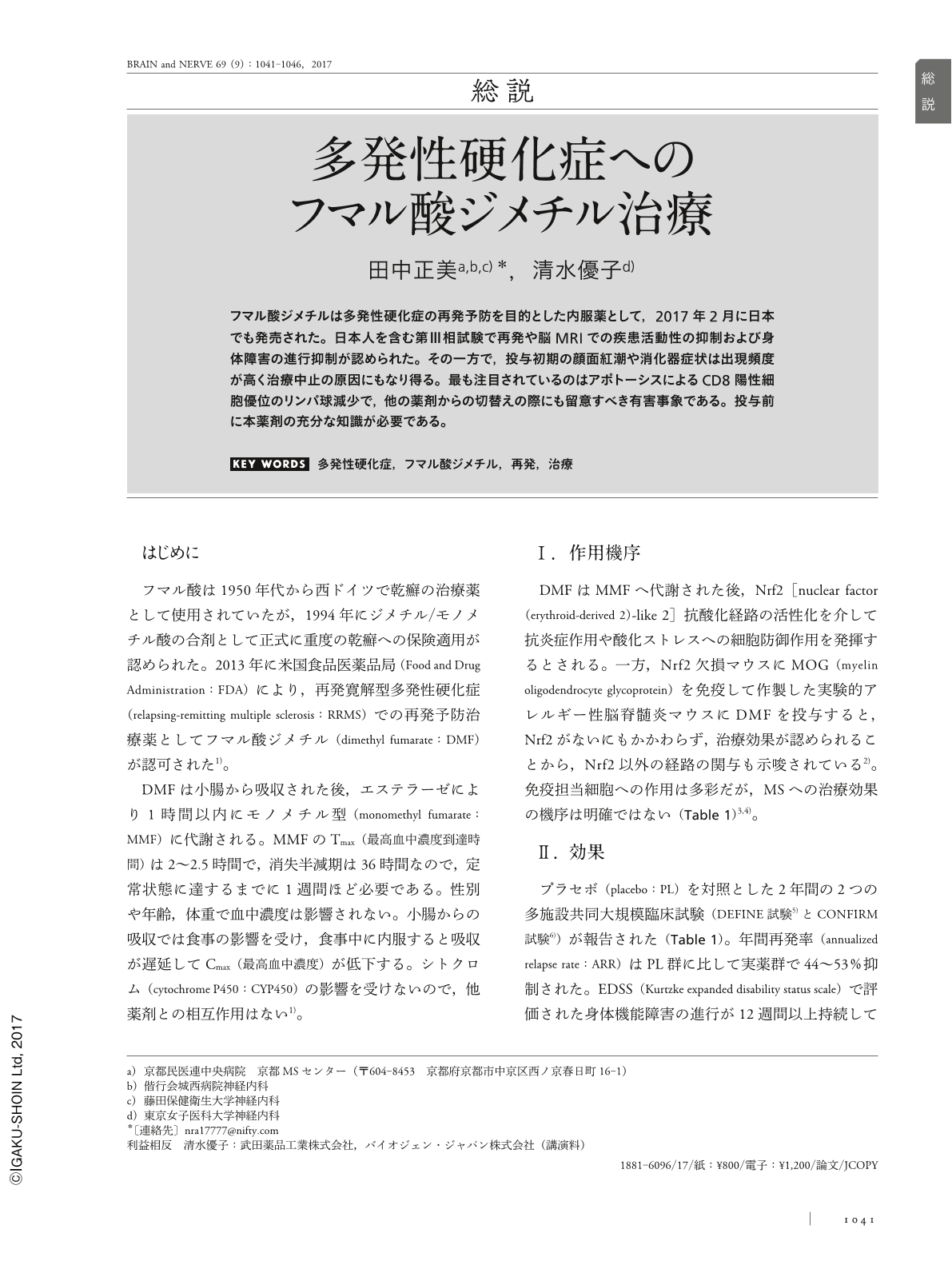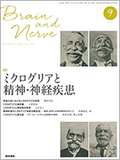Japanese
English
- 有料閲覧
- Abstract 文献概要
- 1ページ目 Look Inside
- 参考文献 Reference
フマル酸ジメチルは多発性硬化症の再発予防を目的とした内服薬として,2017年2月に日本でも発売された。日本人を含む第Ⅲ相試験で再発や脳MRIでの疾患活動性の抑制および身体障害の進行抑制が認められた。その一方で,投与初期の顔面紅潮や消化器症状は出現頻度が高く治療中止の原因にもなり得る。最も注目されているのはアポトーシスによるCD8陽性細胞優位のリンパ球減少で,他の薬剤からの切替えの際にも留意すべき有害事象である。投与前に本薬剤の充分な知識が必要である。
Abstract
At the end of 2016, dimethyl fumarate (DMF) was approved as the sixth disease-modifying drug for multiple sclerosis by the Pharmaceuticals and Medical Devices Agency of Japan. Two randomized, placebo-controlled, phase Ⅲ studies (DEFINE and CONFIRM) showed beneficial effects in patients in Western countries, with relapsing-remitting multiple sclerosis (RRMS). Some of the benefits included a decreased annual relapse rate, inhibition of disease activity (shown using brain magnetic resonance imaging), and a decreased proportion of patients with confirmed disease progression. The APEX study, which included Japanese patients with RRMS, also showed similar results, but reported some adverse effects. Flushing and gastrointestinal events (e.g., nausea, vomiting, abdominal pain, and diarrhea) occurring within 1 month of the initiation of DMF treatment are major causes of discontinuation of the drug. The most serious adverse event is progressive multifocal leukoencephalopathy (PML), which was reported in four patients with MS treated with DMF, worldwide. Grade 3 lymphopenia (less than 500/mm3) due to apoptosis occurs in some DMF-treated patients with MS and is more prevalent among older patients. A reduction in CD8+ T cells is more pronounced than that in CD4+ T cells. Patients with grade 3 lymphopenia, aged more than 50 years, are at a risk for PML development. Further studies are needed to determine the appropriate final dose and an acceptable dose-escalation method for DMF treatment, to prevent or decrease adverse effects in Japanese patients with MS.

Copyright © 2017, Igaku-Shoin Ltd. All rights reserved.


